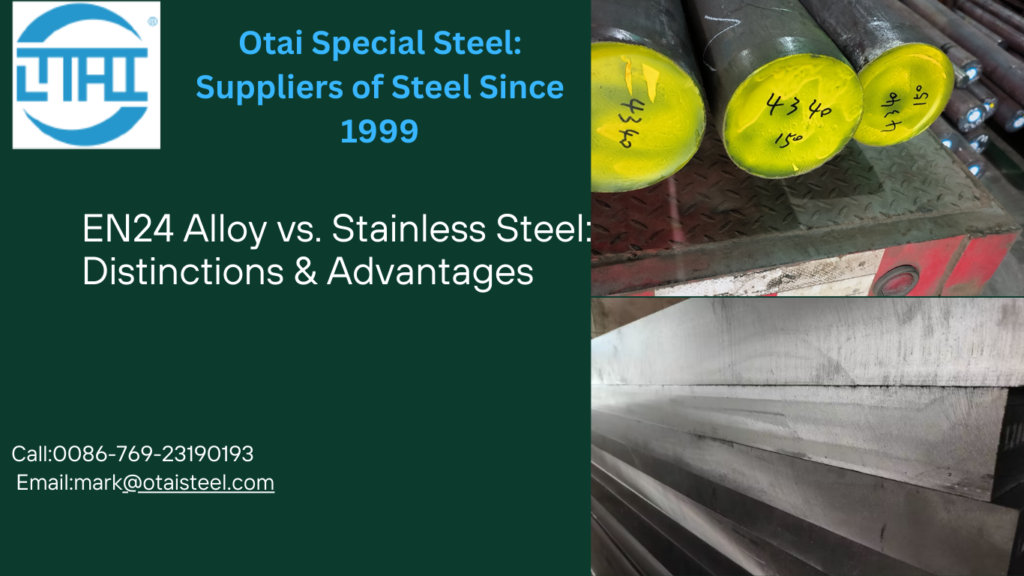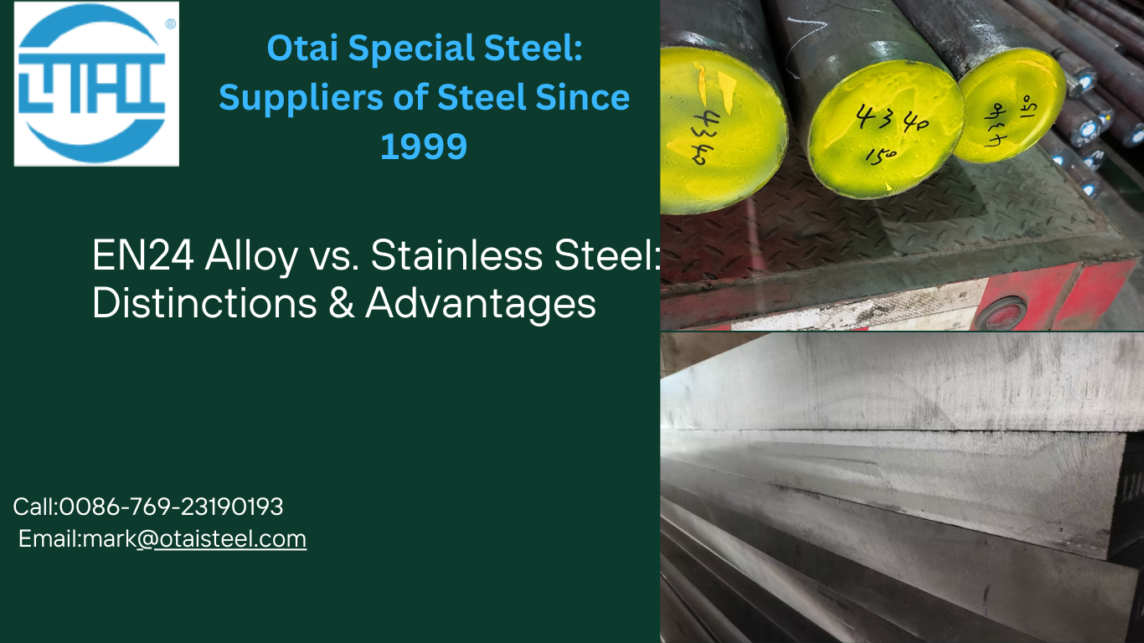Embarking on a journey into alloys, let’s unravel the unique characteristics of EN24 compared to stainless steel. Clearing the air, EN24 is not a stainless steel. Explore the differences and discover the distinct advantages each brings to the table.

Understanding EN24 Alloy: Not Your Ordinary Stainless Steel
While often associated with stainless steel, EN24 stands apart as a distinct alloy. It’s crucial to clarify that they are two different steel; rather, they fall into the category of high-tensile alloy steels. The composition, mechanical properties, and applications diverge significantly from conventional stainless steels.
EN24 vs. Stainless Steel: Unveiling Differences and Advantages
Now, let’s delve into the core comparison. Understanding the disparities between these two steel is key to informed decision-making. Here’s a brief breakdown of the differences:
-
Composition:
- EN24 Alloy: Primarily composed of Chromium, Nickel, Manganese, and Carbon for high-tensile strength.
- Stainless Steel: Mainly consists of Chromium, Nickel, and other elements for corrosion resistance.
-
Mechanical Properties:
- EN24 Alloy: Known for exceptional tensile strength, impact toughness, and fatigue resistance.
- Stainless Steel: Favored for its corrosion resistance, ductility, and aesthetic appeal.
-
Applications:
- EN24 Alloy: Thrives in applications demanding high strength, such as gears, axles, and crankshafts.
- Stainless Steel: Excels in environments requiring corrosion resistance, like kitchen appliances and architectural structures.
Defining Stainless Steel and EN24’s Distinction
Stainless steel, by definition, is an alloy recognized for its corrosion resistance, a result of its chromium content forming a protective oxide layer. On the contrary, EN24, although alloyed with chromium, is not classified as stainless due to its primary focus on high-tensile strength rather than corrosion resistance.
The Advantages of EN24 Alloy
- Exceptional Strength: EN24, surpasses stainless steel in terms of tensile strength, making it ideal for heavy-duty applications.
- Versatility in High-Stress Environments: EN24 excels in environments requiring resistance to extreme stress and fatigue.
- Wide Range of Applications: From manufacturing to aerospace, EN24 finds its niche in various industries.
Conclusion: Navigating the Alloy Landscape
In conclusion, it’s paramount to recognize that EN24 is not a stainless steel; instead, it emerges as a robust high-tensile alloy with distinctive advantages. By understanding the differences, you empower yourself to choose the right material for the intended application.
Should you have further questions or seek clarification, we invite you to engage in a constructive dialogue. As you navigate the alloy landscape, let EN24 be your beacon of strength and reliability.
Best Regards,
Mark Dongguan OTAI Special Steel Team
